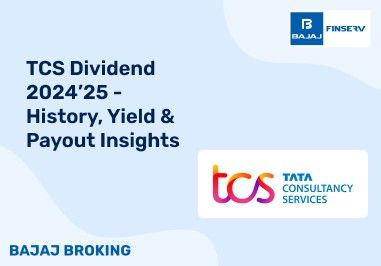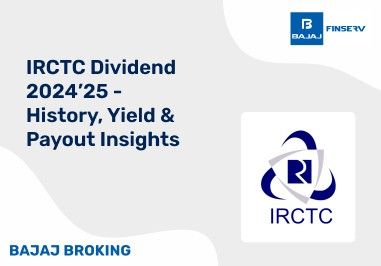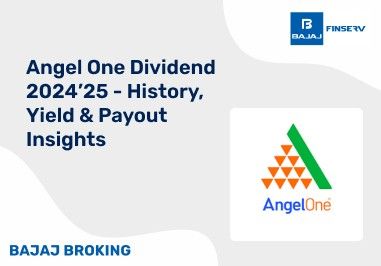BAJAJ BROKING
Tankup Engineers IPO is Open!
Open a Free Demat Account
Trade Now, Pay Later with up to 4x
Track Market Movers Instantly
What are B-Shares?
Shares are the foundational blocks of a stock market. They represent the ownership in a company. When a company is in need of funds, it goes public and seeks investment. In return for the investment, it provides a share of ownership. The shares can then be bought and sold, and resold in an unending loop. Investing in shares and their thoroughly researched sale and purchase can be a great source of earning money.
The companies issue various types of shares which are categorised on the basis of benefits and rights that they offer. Some shares may be more expensive than others. There may also be differences in terms of voting rights, claims on dividend and bankruptcy payouts, and eligibility criteria. These differences give rise to various share classes.
Shares are categorised on the basis of the rights and benefits offered to an investor. When a group of shares have the same rights, obligations and benefits, they are termed as share class.
These shares are generally categorised as Class A shares, Class B-shares, and Class C shares. Share classes are necessary because they help companies offer a distinct set of privileges and rights to shareholders in different classes. This also makes it possible for investors with different capital budgets to invest in the company’s shares.
For example, shares from a class that carries superior privileges may be expensive. However, investors with a lower investment budget can purchase shares from a different class — even if it carries fewer privileges — and still own a part of the company and participate in its growth story.
Class B shares are a category of shares that most publicly traded companies issue. If a company has already issued one type of share and wants to introduce another group of shares with a different set of rights into the market, these shares are categorized as class B.
Whether or not class B-shares have more voting rights than class A shares depends on the company issuing them and the associated terms and conditions. Broadly speaking, however, here is how class B shares compare with class A shares based on the type of company issuing them.
- General Companies
In most companies, class B-shares carry fewer voting rights in comparison with class A shares. The exact difference in voting rights may vary from one company to another. For instance, one company may offer more voting rights on class A shares than class B shares. In comparison to Class A shares, the Class B shares have a lower priority of payment.
- Technology Companies
In technology companies, the classification of shares may be the opposite. So, class B shares carry more voting rights than class A shares — often around 10X more. These shares, known as super-voting shares, are typically issued to the company’s insiders and are not traded publicly. This kind of structure helps the company retain control over their class B shares.
A famous example of a company with super-voting class B shares is Google. While its class A shares are common stock carrying regular voting rights, its class B shares are held by the company’s founders and carry ten times more voting power than Google’s class A shares.
- Low-Priced Class B Shares
Another type of distinction a company may adopt between its class A and class B shares is the price of the shares. Here, class A shares may be offered at extremely high prices, even though they are traded publicly. This only makes them accessible to a small segment of investors who have the capital needed to purchase such expensive shares.
In these companies, the class B shares are more affordably priced. The voting power of these shares is also only a fraction of the rights offered by the expensive class A shares, but the reduced price makes it easier for investors with a smaller capital outlay to own shares in the company.
Even though the history of the stock market is now old, the concept of share class is fairly new. Companies generally used to issue only one type of shares and it was in 1996 the first set of class B shares were issued. The features of these class B-shares were as follows:
- Their economic interest was one-thirtieth of class A shares
- They had one-two-hundredth the voting rights of class A shares
Warren Buffett, who was the CEO of Berkshire Hathaway then, explained the rationale behind issuing these class B shares as follows.
- These shares helped the company obtain public financing without forcing the owners to give up control.
- They also attracted smaller investors with lower amounts of capital.
- These class B shares could be a long-term investment option that prevents fluctuating prices.
Conclusion
To sum it up, there is no clear way to define class B-shares on their own. To understand what class B shares are, you need to always study them in comparison with other share classes. Also, since the meaning, rights and terms of class B shares differ from one company to another, ensure that you understand the share class structure of the company or companies you wish to invest in. These distinctions are not universal.
Disclaimer: Investments in the securities market are subject to market risk, read all related documents carefully before investing.
This content is for educational purposes only. Securities quoted are exemplary and not recommendatory.
For All Disclaimers Click Here: https://www.bajajbroking.in/disclaimer
Share this article:
Read More Blogs
Disclaimer :
The information on this website is provided on "AS IS" basis. Bajaj Broking (BFSL) does not warrant the accuracy of the information given herein, either expressly or impliedly, for any particular purpose and expressly disclaims any warranties of merchantability or suitability for any particular purpose. While BFSL strives to ensure accuracy, it does not guarantee the completeness, reliability, or timeliness of the information. Users are advised to independently verify details and stay updated with any changes.
The information provided on this website is for general informational purposes only and is subject to change without prior notice. BFSL shall not be responsible for any consequences arising from reliance on the information provided herein and shall not be held responsible for all or any actions that may subsequently result in any loss, damage and or liability. Interest rates, fees, and charges etc., are revised from time to time, for the latest details please refer to our Pricing page.
Neither the information, nor any opinion contained in this website constitutes a solicitation or offer by BFSL or its affiliates to buy or sell any securities, futures, options or other financial instruments or provide any investment advice or service.
BFSL is acting as distributor for non-broking products/ services such as IPO, Mutual Fund, Insurance, PMS, and NPS. These are not Exchange Traded Products. For more details on risk factors, terms and conditions please read the sales brochure carefully before investing.
Investments in the securities market are subject to market risk, read all related documents carefully before investing. This content is for educational purposes only. Securities quoted are exemplary and not recommendatory.
For more disclaimer, check here : https://www.bajajbroking.in/disclaimer
Our Secure Trading Platforms
Level up your stock market experience: Download the Bajaj Broking App for effortless investing and trading













